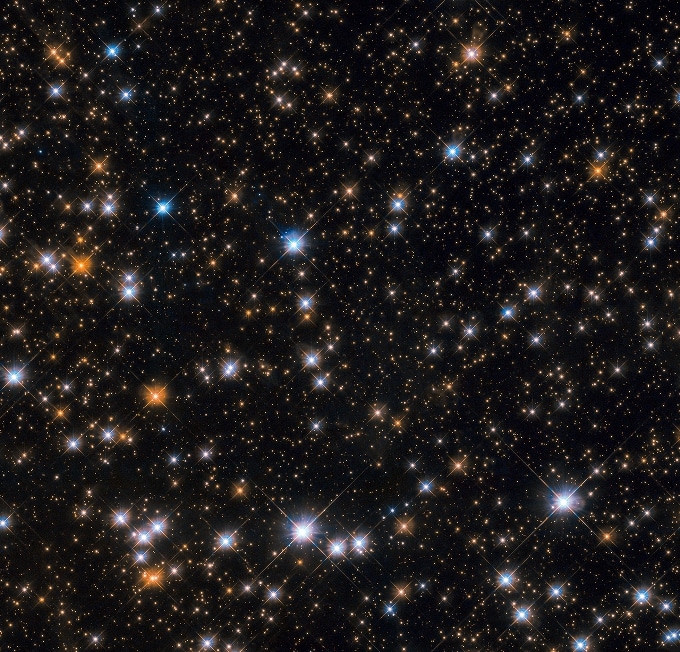Apr 1 2019
A portion of Messier 11 is shown in the star-studded image below. Messier 11 is an open star cluster in the southern constellation of Scutum—the Shield. It is also called the Wild Duck Cluster since its brightest stars form a “V” shape that resembles, to some extent, a flock of ducks in flight.
 This is a Hubble image of Messier 11. (Image credit: ESA/Hubble & NASA, P. Dobbie et al.)
This is a Hubble image of Messier 11. (Image credit: ESA/Hubble & NASA, P. Dobbie et al.)
Messier 11 is among the most compact and richest open clusters known till date. Astronomers examined the hottest, brightest main sequence stars in the cluster and predicted that it formed approximately 220 million years ago. Messier 11 is quite similar to open clusters that tend to consist of younger and fewer stars compared their more compact globular cousins: several blue stars are located at its center, the youngest and hottest of the cluster’s few thousand stellar residents.
The lifetime of open clusters is also comparatively short than that of globular clusters; since stars in open clusters are spread farther from one another and are thus not as strongly attracted to each other by gravity, they tend to be more quickly and easily drawn away by stronger gravitational forces. Consequently, Messier 11 is expected to scatter within a few million years since its members are thrown out one by one, dragged away by other celestial objects in the proximity.
Messier 11 features in Hubble’s Messier catalog, which also includes some of the most intriguing objects that can be viewed from Earth’s Northern Hemisphere.